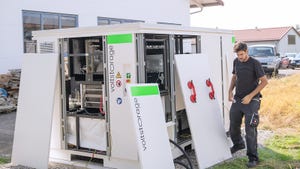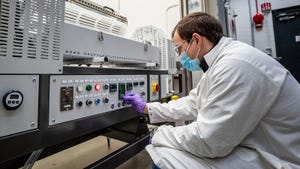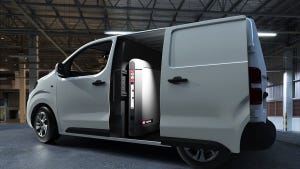Tesla: EV Profits Down; Energy-Storage Profits Up; Cybertruck Coming
Tesla has been slashing its EV prices while seeing growth in its energy-storage business, as CEO Musk explained to investors this week.
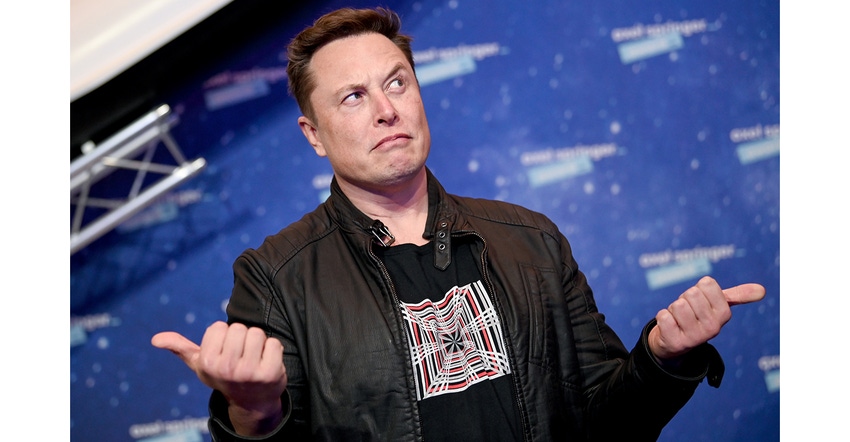
Tesla had good news and bad news in its first-quarter earnings call on Wednesday. First, the headline-generating bad news: the call reported that the company’s first-quarter profits—$2.9 billion, excluding special items—are down 22% from a year ago.
Tesla has cut the price of its EVs four times this year so far—twice so far this month and once this very week: According to the Barrons Daily e-newsletter, prices for U.S. models are down by 14% to 25%: The Model Y crossover now costs $49,990, and the Model 3 rear-wheel drive costs $39,900.
In the earnings call, company founder Elon Musk acknowledged the price cuts as a response to the current economic “stormy weather” of high inflation and interest rate hikes, which he guessed could continue for another year.
Price cuts now, profits later
Musk stood by the choice to cut prices, even in the face of lower profit margins in the near term. According to CNN, he said, “We’ve taken a view that pushing for higher volumes and a larger fleet is the right choice here versus a lower volume and higher margins.”
He also reminded that the company’s cars will include not only all-electric power but also—and soon, he says—autonomous driving capability.
Musk said that the company will “likely” launch full-self-driving technology this year, which will generate “significant profits,” offsetting this quarter’s losses, according to Reuters.
The Financial Times quotes Musk as saying that “We’re the only ones making cars that technically could sell for zero profits now and yield tremendous profits in [the] future through autonomy.” FT goes on to note that Tesla “has missed repeated targets Musk has set for full autonomy and has given only the broadest outline of how it could earn fees from letting Tesla owners rent out their personal cars as driverless taxis.”
Energy business thrives
But it wasn’t all bad news: The company reported that during just this quarter, Tesla Energy’s battery storage deployments increased 360% year-over-year, to 3.9 GWh.
“Energy storage deployments increased by 360% YoY in Q1 to 3.9 GWh, the highest level of deployments we have achieved due to [the] ongoing Megafactory ramp,” the company’s Q1 report noted. “The ramp of our 40 GWh Megapack factory in Lathrop, California has been successful with still more room to reach full capacity.” It added, “This Megapack factory will be the first of many. We recently announced our second 40 GWh Megafactory, this time in Shanghai, with construction starting later this year.”
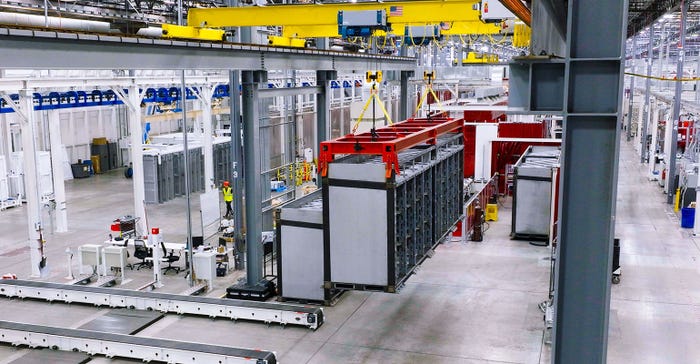
And the Teslarati website quoted Musk as adding, “If you just look at what’s needed to transition the world to a sustainable energy economy, there is more stationary energy storage needed than there is mobile energy storage. We are seeing growth of our stationary storage well in excess of automotive, so that is in line with expectations,”
Cybertruck coming soon
And the other piece of news that may offset those disappointing profit numbers in some minds was the report that the Tesla Cybertruck, first announced in 2019, is expected to be released in the third quarter of this year, with volume production starting in 2024.
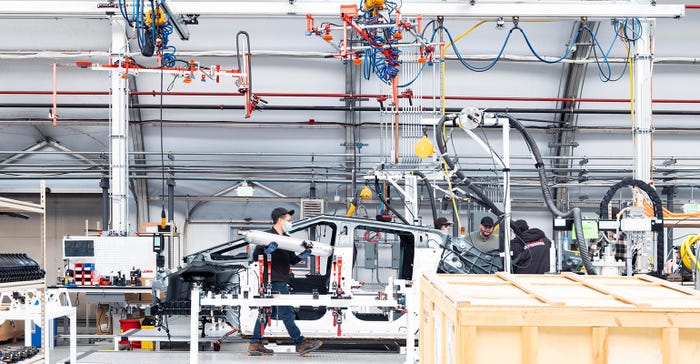
“It takes time to get the manufacturing line going, and this is really a very radical product,” Musk said on the Wednesday call. “It’s not made in the way that other cars are made.”
The truck is made from “ultra-hard, 30X cold-rolled stainless steel,” rather than the lighter steel more commonly used in vehicle construction, according to the Tesla website. “The powerful drivetrain and low center of gravity provide extraordinary traction control and torque—enabling acceleration from 0-60 mph in as little as 2.9 seconds and up to 500 miles of range,” the company promises.
About the Author(s)
You May Also Like


